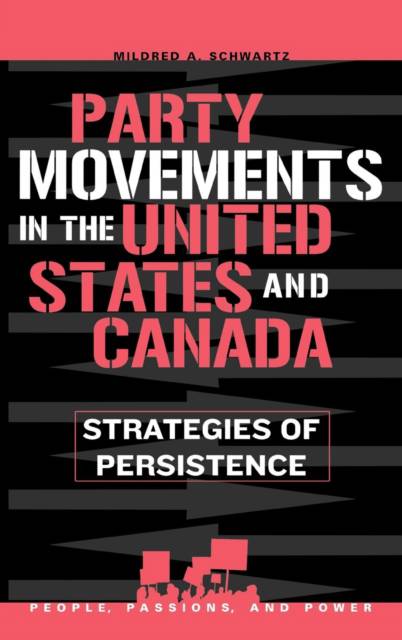
- Afhalen na 1 uur in een winkel met voorraad
- Gratis thuislevering in België vanaf € 30
- Ruim aanbod met 7 miljoen producten
- Afhalen na 1 uur in een winkel met voorraad
- Gratis thuislevering in België vanaf € 30
- Ruim aanbod met 7 miljoen producten
Zoeken
€ 246,95
+ 493 punten
Uitvoering
Omschrijving
Party movements can be described as political organizations that both participate in the electoral process and have social movement qualities. They appear frequently in both Canada and the United States. Many of these movements face huge organizational problems, and yet they display remarkable resilience, signaling both continuing political dissatisfactions as well as possibilities for changing political outcomes. This book demonstrates how organizational theory can be useful for understanding party movements, and also expands on the idea of continuity, contributing new ways of thinking about how organizations change and survive in the face of recurring dilemmas. This look inside party movements, at the organizational problems they face and the strategies employed to deal with them, represents a new way of accounting for their history that contrasts with perspectives focusing solely on external conditions.
Specificaties
Betrokkenen
- Auteur(s):
- Uitgeverij:
Inhoud
- Aantal bladzijden:
- 252
- Taal:
- Engels
- Reeks:
Eigenschappen
- Productcode (EAN):
- 9780742539679
- Verschijningsdatum:
- 7/12/2005
- Uitvoering:
- Hardcover
- Formaat:
- Genaaid
- Afmetingen:
- 156 mm x 234 mm
- Gewicht:
- 530 g

Alleen bij Standaard Boekhandel
+ 493 punten op je klantenkaart van Standaard Boekhandel
Beoordelingen
We publiceren alleen reviews die voldoen aan de voorwaarden voor reviews. Bekijk onze voorwaarden voor reviews.











